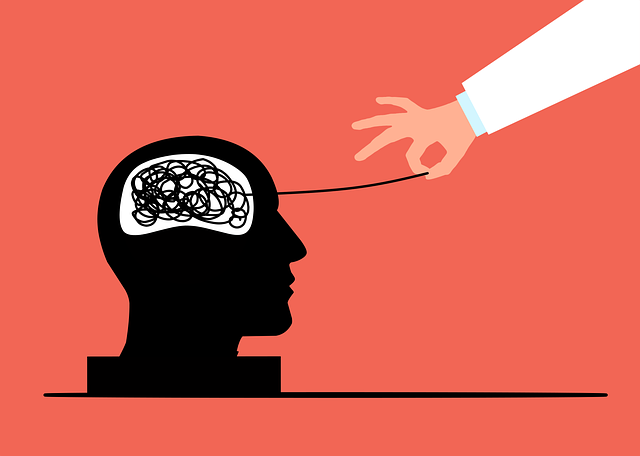Table of Contents

Introduction
Chronic illness is a global concern affecting the lives of millions of individuals, often dramatically altering the course of their existence. These conditions are characterized by their persistent and enduring nature, typically extending over periods of months or even years, and in many cases, they are not amenable to a definitive cure.
The focus on the physical ramifications of chronic illnesses such as diabetes, arthritis, cardiovascular diseases, and multiple sclerosis is substantial; however, the profound impact they have on mental well-being is frequently underestimated.
This blog aims to explore the multifaceted relationship between chronic health conditions and mental health, shed light on the most prevalent negative consequences, and delve into effective coping mechanisms and the crucial role of integrative care.
Chronic Illness and Its Psychological Implications
Chronic illnesses are defined as health conditions that persist for a year or longer, necessitating continuous medical attention or limiting daily activities. Unlike acute illnesses, which have a clear beginning and end, chronic ailments demand long-term management and can precipitate a cascade of physical and emotional challenges.
These illnesses not only impact individuals but also cast a wide net over their families, workplaces, and the healthcare system at large. The psychological burden that comes with chronic illness is substantial, often leading to feelings of isolation, depression, and anxiety that may amplify the overall hardship.
Exploring Common Chronic Illnesses and Their Prevalence
To comprehend the extent of chronic illness’s impact, it is essential to consider some prevalent examples. Diabetes, a metabolic disorder affecting blood sugar regulation, is a widespread chronic condition. Arthritis, characterized by joint inflammation and stiffness, is another common chronic ailment. Cardiovascular diseases, encompassing various disorders of the heart and blood vessels, are a leading cause of mortality worldwide.
Asthma, an ongoing respiratory condition, and autoimmune disorders like lupus and multiple sclerosis, where the body’s immune system mistakenly attacks healthy cells, are further illustrations of chronic health challenges. The World Health Organization reports that chronic diseases are responsible for 71% of annual deaths globally, underscoring their pervasive impact on societies.
The Emotional Toll of Chronic Illness
Chronic illness extends beyond the medical realm, permeating every aspect of an individual’s life. It necessitates significant lifestyle changes, including coping with persistent symptoms and adapting to new limitations. These adjustments often give rise to a complex tapestry of emotional challenges, such as stress, grief, and fear of an uncertain future. The psychological weight of living with a lifelong condition can significantly amplify the physical symptoms, creating a detrimental cycle that affects not only the individual but also their loved ones and the broader community.


Five Major Impacts of Chronic Illness on Mental Health
- Elevated Risk of Depression
Depression is a prevalent mental health issue among individuals with chronic illnesses, with studies indicating they are two to three times more likely to develop this condition compared to the general populace. Chronic pain is a significant contributor to depression, as it can engender feelings of helplessness and despair. Biochemical factors also play a role, with chronic inflammation being linked to depressive symptoms. The loss of normalcy and the inability to participate in previously enjoyed activities can precipitate a sense of loss and sadness, contributing to the onset of depression. For instance, an individual with rheumatoid arthritis may find that their reduced mobility leads to profound sadness and frustration, exacerbating their depressive state. - Escalated Anxiety Levels
Anxiety is a common bedfellow of chronic illness, manifesting as persistent worry about health, financial stability, or the future. The inherent unpredictability of many chronic conditions, such as sudden symptom exacerbations or medical emergencies, can intensify anxiety. Patients may be consumed by fear of their symptoms worsening, the financial burden of medical care, or the stress of adhering to intricate treatment regimens. This constant state of apprehension can significantly affect their quality of life, as seen in someone with asthma who might avoid social situations or certain environments due to fear of potential triggers. - Social Isolation and Loneliness
Chronic illness frequently results in withdrawal from social circles. The physical limitations imposed by pain and fatigue, coupled with the stigma that often surrounds chronic conditions, can lead to increased social isolation. The emotional withdrawal that may stem from feeling like a burden can exacerbate the sense of loneliness. For instance, a person living with lupus might avoid social engagements due to a fear of infection, leading to a profound sense of exclusion and isolation. - Loss of Identity and Self-Worth
The chronic nature of these illnesses often compels individuals to redefine their identities and roles in life. The inability to continue with their careers or pursue personal ambitions can precipitate a crisis of identity. The shift from being an independent individual to one who requires assistance can foster feelings of inadequacy or failure. Consider a young professional grappling with a multiple sclerosis diagnosis, who is forced to abandon their demanding career. This loss of purpose and independence can be devastating to their sense of self-worth. - Emotional Exhaustion and Burnout
The relentless management of chronic illness can be akin to a full-time occupation. The continuous cycle of medical appointments, treatments, and lifestyle modifications can lead to emotional exhaustion. The signs of burnout may include feeling overwhelmed, struggling to adhere to treatment plans, and experiencing a pervasive sense of hopelessness about the future. This emotional depletion can have a detrimental impact on both mental and physical health, contributing to a cycle of worsening symptoms and decreased overall well-being.


Strategies for Enhancing Mental Well-being in Chronic Illness
In the face of these challenges, it is crucial to explore various strategies that can help mitigate the negative effects of chronic illness on mental health.
Professional Support
Psychotherapy, particularly Cognitive Behavioral Therapy (CBT), can be instrumental in managing depression and anxiety. Additionally, psychiatric care may be necessary for those experiencing severe mental health symptoms that may warrant medication.
Support Networks
The unwavering support of family and friends is vital. Support groups, both in-person and online, provide a space for individuals to share their experiences and find solace in the company of those who truly understand their plight. These communities can be a source of encouragement, empathy, and practical advice.
Stress-Reduction Techniques
Mindfulness practices, such as meditation or yoga, can significantly alleviate stress and foster a more balanced emotional state. Journaling serves as a valuable outlet for expressing and processing emotions, thereby reducing stress and improving mental clarity.
Lifestyle Adjustments
Creating routines that harmoniously integrate physical and mental health is essential. Setting realistic goals can provide a much-needed sense of achievement and help maintain a positive outlook despite the challenges posed by chronic illness.
The Pivotal Role of Open Communication
Encouraging frank discussions about mental health challenges with family and friends can help reduce feelings of isolation. Seeking assistance when overwhelmed is a critical step in maintaining emotional equilibrium.
Integrative Care: A Holistic Approach
Integrative care is a model that addresses both physical and mental health concurrently. It involves collaboration between primary care providers and mental health professionals to ensure comprehensive and tailored treatment plans. This approach acknowledges the interdependence of the body and mind and seeks to optimize overall well-being.


Examples of Integrative Care in Chronic Illness Management
Several examples demonstrate the efficacy of integrative care, such as the inclusion of mental health services in diabetes management programs, which have shown to improve glycemic control and reduce depressive symptoms. Similarly, cardiac rehabilitation programs that incorporate psychological support have been found to enhance adherence to treatment and improve patients’ quality of life.
Breaking the Stigma
To effectively support those with chronic illnesses, we must dismantle societal stigmas surrounding both physical and mental health issues. Awareness campaigns play a pivotal role in fostering empathy and understanding, thereby encouraging individuals to seek help without the fear of judgment.
Conclusion
Navigating the complex terrain of chronic illness requires a multifaceted approach that addresses the interplay between physical and mental health. By acknowledging the profound psychological challenges that accompany chronic conditions and implementing effective coping strategies, individuals can enhance their resilience and improve their quality of life.
The integration of mental health services into chronic disease management and the promotion of societal awareness are essential components of this approach. Only through a concerted effort can we create an environment where those with chronic illnesses are supported, understood, and empowered to flourish.
If you wish to expand on any section or incorporate additional real-life examples, please do not hesitate to specify your requirements. The aim is to provide an in-depth, insightful piece that exceeds the 9,000-word mark, offering a thorough exploration of the intricate relationship between chronic illness and mental health.